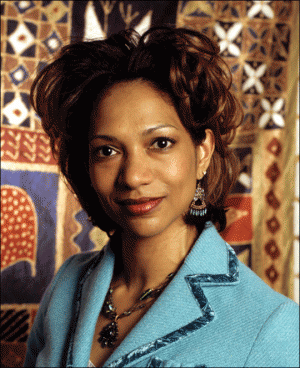Shanti Parikh, the first African American professor to complete her tenure track, expertly juggles being a mother, wife, professor, mentor, and researcher.
“I’ve worked very hard, and I do feel honored,” Parikh said. “However, I think it’s a bit embarrassing for Arts & Sciences that this is only happening in the year 2010. It seems to me like electing the first African-American president would have been harder to do.”
A native of Maryland, Parikh grew up just outside Washington, D.C. and attended the University of Virginia as an undergraduate. Although she wanted to study anthropology, Parikh’s family persuaded her against it.
“My mom sort of looked at me and said, ‘You need something more practical,’” Parikh said. “She said that as an African-American woman, I wouldn’t get very far with anthropology.”
Following her mother’s advice, Parikh pursued a degree in finance instead. She joined the Peace Corps after graduation and traveled to Kenya as a small business adviser. Although the work was satisfying, Parikh “ kept looking at it through an anthropological lens.”
Upon her return to the United States, Parikh earned a doctorate in anthropology from Yale University. She later returned to East Africa to do fieldwork involving sexual health, gender and class inequalities, and the HIV/AIDS epidemic.
She came to Washington University in 2000 for a post-doctoral fellowship and began her tenure-track appointment the following year. In addition to teaching and researching, Parikh also got married, lost both parents and gave birth to her two children, now 2 years old and 6 months old.
“I saw life and death,” she said of her past decade in St. Louis. “I learned early that you can try to map out a plan for your life, but life gets in the way.”
Along with serving as the primary caregiver for both of her elderly parents, Parikh also navigated through motherhood and maternity leave while fulfilling her teaching and research obligations.
“I probably don’t spend enough time with my kids,” she confessed. Rushing into her office last Wednesday morning, Parikh described the chaos of having a sick baby at home. “The doctor can’t see him until tomorrow, but that’s my long teaching day so I have to be here.”
“Taking time off [for the sake of one’s children] can lead to gaps in a woman’s publishing, which might make her look unproductive, when in fact she’s on maternity leave,” Parikh said. “It’s not supposed to work against you, but there’s still a lot of pressure to produce during that time.”
Gaps in publishing may make it more difficult for women in academia to become tenured at the same rate as men and may contribute to the pay gap that exists across almost all professional fields.
According to the Office of the Provost’s Gender Pay Equity Report released in May 2010, Danforth Campus female faculty members earn $3,072-$3,979 less than their male counterparts.
“It’s a reflection of society at large, and the University is a microcosm of that,” Parikh said of this inequality. “Society undervalues women, and women have internalized that. We tend to undervalue our labor and our worth.”
Although their salaries still lag behind those of men, the number of women in academia is increasing. According to the provost’s 2009 Report on Trends in Faculty Diversity on Danforth Campus, 28 percent of tenured or tenure-track faculty are women, up from 22 percent in 1999.
The outlook is less promising for under-represented minorities, a category including African-Americans, Hispanics, and Native Americans. The report reveals that underrepresented minorities make up a dismal 6 percent of tenured or tenure-track faculty, a marginal increase from 5 percent in 1999.
According to Parikh, the lack of diversity is not a result of malicious racism, but of what she calls “benign neglect.”
“People don’t mean to let underrepresented minorities fall through the cracks,” she said. “I just think they really don’t understand how pressing of an issue this is.”
“Wife,” “mother,” “academic” and “advocate” all accurately describe Parikh, but she strives to fulfill an additional role as well.
“I think mentoring students is a huge part of what I do. I feel fortunate here because I’ve gotten mentorship from other women faculty, but the lack of mentorship for minority students is often a problem.”
To address this, Parikh works with the Mellon Mays Undergraduate Fellowship, a nationwide program that encourages minority students in higher education to foster relationships with mentors.
“My research and my interests focus on people who are marginalized,” she said. “I’d like to help nurture a younger breed of minority students.”
Ultimately, Parikh hopes to bring more attention to the lack of diversity in both the student body and faculty at Washington University.
“My case has been positive, but we have not fixed the issue,” Parikh said. “We still have a long way to go.”











